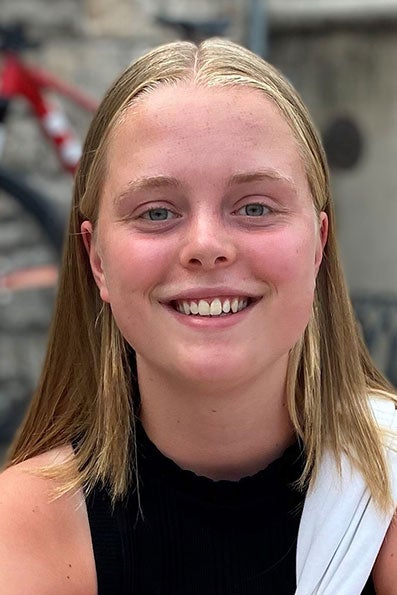“Before I decided on Business Analytics, I first doubted whether Econometrics would not be a better choice. This study is very similar to Business Analytics, but is a bit more theoretical and focuses more on proving mathematics rather than applying it. Business Analytics focuses more on practice and applications in organisations and companies which appealed to me a lot, which is why I eventually chose Business Analytics.”
What makes Business Analytics at VU Amsterdam unique?
“I really liked at VU Amsterdam that every six months there are projects where you get a business case from a real company that you then have to solve together. Many other university studies lack the practical part and that is also what I think makes Business Analytics really unique.”
Can you give an example of a project you worked on?
“In the first two periods, we were given a business case by the bicycle accessory company BBB cycling. For them, we had to do various data analyses that we had to use, for example, to predict the next year's sales. In the end, we used different data analyses to create a warehouse layout that was optimal for their goals. At the end of the study, we presented the results of the analyses to the board using a poster.”
How did you use mathematics to solve this problem?
“In the project, we used Excel a lot in which we worked out different formulas to do the analyses. We often got these formulas from the lecturers and used them to determine the parameters that were best for our products. The mathematics you get during the course calculus, for example, helps a lot to understand these formulas better.”
What do you think of the level of mathematics?
“The level of mathematics is high, but it is manageable if you keep up with everything. At the beginning, the maths connects well with the maths you learnt in high school. They just start back at the beginning, so you don't have to worry if your maths slips a bit in the summer holidays.”
What is the atmosphere like at the Business Analytics course?
“The atmosphere is very good on the course. This is also because the study is not very big, so you do know everyone a bit. The lecturers are very helpful; you can always ask them questions after a lecture or send them an e-mail if you still have questions. I really like that the study groups are taught by TAs (senior students who supervise study groups and grade exams), because the threshold for asking a question is a lot lower than with the lecturers. And they often explain things in a different way, which can sometimes make the difference between getting it and not getting it.”
